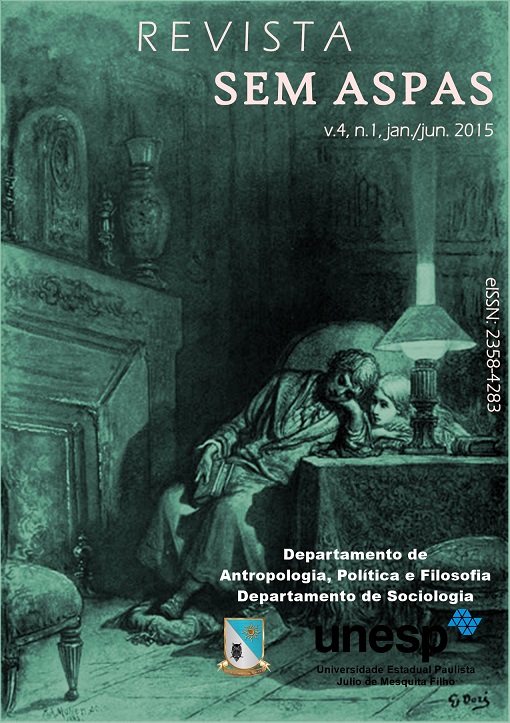O sentido da escravidão em O Tronco do Ipê, de José de Alencar
DOI:
https://doi.org/10.29373/sas.v4i0.8346Palabras clave:
Escravismo, Literatura brasileira, José de Alencar, História do BrasilResumen
O presente artigo objetiva avaliar como o escritor e político brasileiro, José de Alencar, compreendia a instituição escravista no Brasil, eliminada após três séculos escudando as relações econômicas, sociais e políticas no país. Para o romancista, o sistema não deveria ser erradicado através de ações governamentais, já que acreditava que sua eliminação ocorreria por meio de relações pacíficas entre senhores e escravos; cabendo ao primeiro a tarefa de civilizar o elemento africano encaminhado ao novo continente como mercadoria a ser explorada até a exaustão física. Já o escravo estava destinado ao eterno agradecimento paternalista ao europeu, por este tê-lo auxiliado a deixar sua condição inferior em relação ao seu proprietário. O romancista defendeu essa posição em vários de seus discursos políticos, cartas enviadas ao Imperador e também em algumas de suas obras, como O trono do Ipê. Desta forma, entendia que as consequências do escravismo seriam positivas para a raça africana.Descargas
Los datos de descargas todavía no están disponibles.
Descargas
Publicado
01/06/2015
Cómo citar
SANTOS, G. de A. B. dos. O sentido da escravidão em O Tronco do Ipê, de José de Alencar. Revista Sem Aspas , Araraquara, v. 4, p. 2–18, 2015. DOI: 10.29373/sas.v4i0.8346. Disponível em: https://periodicos.fclar.unesp.br/semaspas/article/view/8346. Acesso em: 27 feb. 2026.
Número
Sección
Artigos









